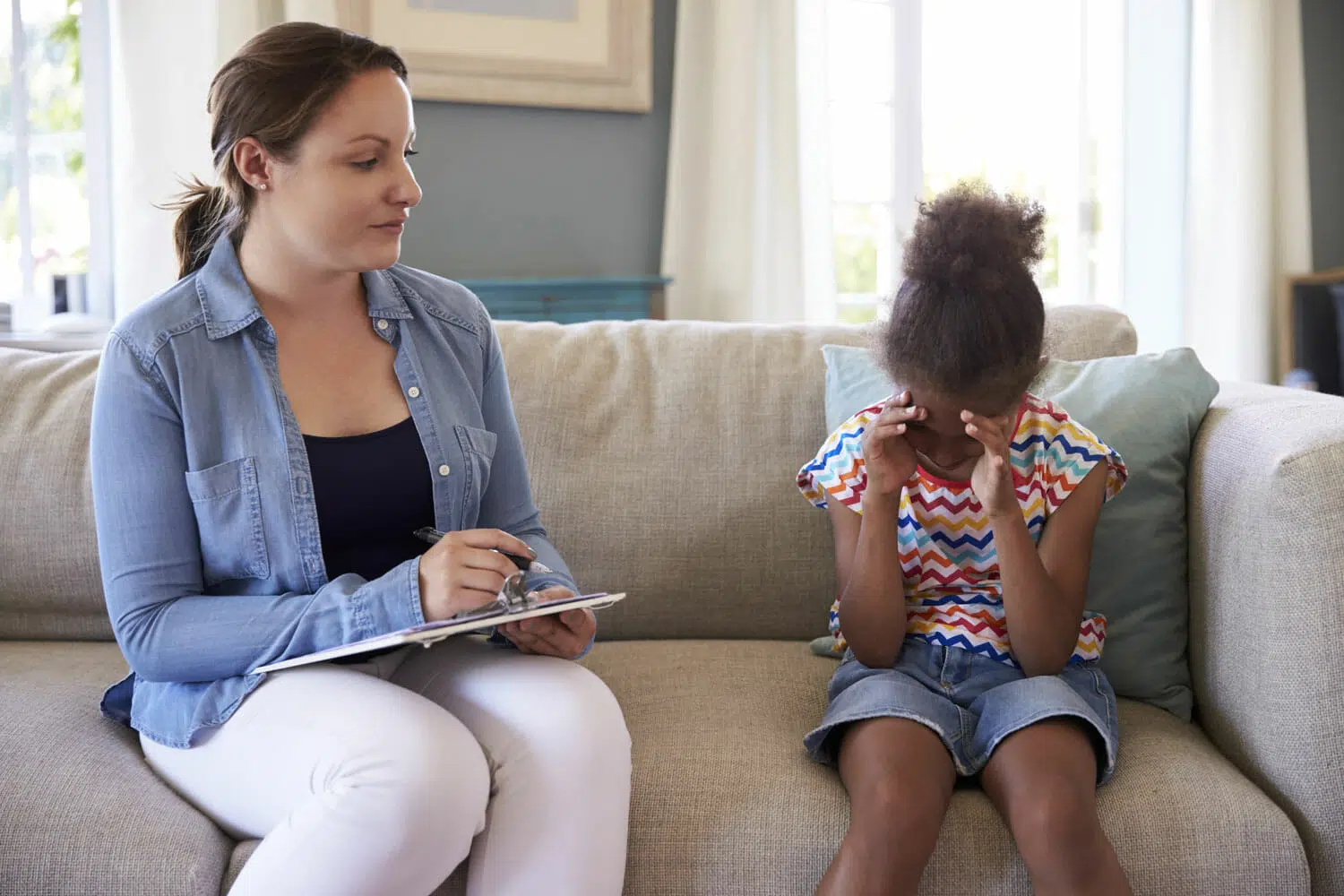Public school guidance counselors often work in near anonymity. Most parents of elementary and middle school parents can name a few of their kids’ teachers, but almost nobody seems to know their child’s guidance counselor. This is a pity, because a guidance counselor often can give you an early warning sign that your kids may not be handling the stress of divorce well. Of course, recognizing the need for counseling before, during and after divorce can make you a better father.
Signs Your Child May Need Counseling Before Divorce
In many Virginia marriages, brewing tensions and rising tempers herald impending divorce. Your children are not immune to the changing moods in your home. If you and your wife are having nightly arguments, if one of you leaves the house unexpectedly for days at a time, or if you find yourself misdirecting your frustration onto your children, they are going to react.
Your children may not show you their reaction directly. They, like you, can use coping skills like misplacing their aggression. They will act out in spaces they feel are safe, such as at school or at play with friends. You may see increasing problems in school, which the guidance counselor may be alerting you to, so do not ignore those calls or emails. You may get complaints from neighbors that your children seem more aggressive, argumentative, or withdrawn than they were before.
Other signs before divorce that your children are having problems that a mental health professional, child therapist or religious leader may be able to help with, according to experts at Health Grades:
- Dramatic mood swings
- Difficulty participating in team or group peer activities (sports, dramatics, music, crafts, scouts, and similar age-appropriate events)
- Sudden drop in grades at school
- Expressing desires to run away
- Saying she or he will harm herself or himself, or harm others
Before a divorce, you may be having so much trouble sorting out your own issues that you overlook your children’s emotional lives. To better prepare them for the path ahead, consider getting them counseling early, so a neutral, nonjudgmental, outside expert can help them work through their feelings.
Signs Your Child May Need Counseling During Divorce
Children will often blame themselves when their parents separate and divorce. Divorce is never their fault; that is one issue you need to deal with, but it not the only challenge you will face.
For children below the age of reason and logic, just reassuring your children that life will continue is simply not sufficient. Their future is uncertain and vague, the past was comforting, and the present is confusing. You have to reach them on their emotional level, at their ability to comprehend. Again, outside counseling may be a way to help them (and you) cope with the stress.
Once you consider that divorce is the fourth most stressful event in the lives of children, according to the Holmes & Rahe Non-Adult Stress Scale, you can be alert to indicators that your kids need help.
During the divorce, with its unclear timeline and repeated meetings with attorneys for you and your wife, children will become confused and, often, desperate to reunite their parents. They may act out in novel ways, according to the Good Man Project:
- Difficulty sleeping or staying asleep
- Refusal to spend time with one parent or the other during the separation
- Physical complaints, such as headache, nausea, allergic reactions and other somatoform illnesses
- Bedwetting
- Extreme overreactions to common issues, like changes in family plans, running out of a favorite food, or misplacing a beloved toy
Signs Your Child May Need Counseling After Divorce
Some children react to life after divorce by plunging into a deep depression. Separating, for example, normal teenage angst from clinical depression is hard, says Psychology Today. They recommend watching for these signs:
- A persistent depressed or irritated mood
- Loss of interest in teen activities
- Panic attacks
- Social isolation — a noticeable drop in friends, social media, or going out
- Fatigue and insomnia
- Expressions of hopelessness or indecision
- Any ideation of suicidal or homicidal thoughts — on social media, in notebooks, scrawled on refrigerator grocery lists, or casually mentioned in conversation, these manifestations must be taken very seriously
Especially in older children who have access to such self-medicating substances, alcohol and drugs are warning signs. Just as adults often escape harsh realities, so too will teenagers dealing with divorced parents, says Psychology Today.
While a normal bout of depression or sadness is a natural reaction to the changing atmosphere of life after divorce, most children will begin to rally when they realize they still have frequent access to both parents. Keep your own head and heart clear to listen to your children, and to watch their reactions.
Trust the Family Lawyers for Fathers
As you call around to find help for your child during divorce, remember to call The Firm For Men at 757-383-9184, or contact us online. We can help smooth out the worst of the stressors for you and your children. We represent Virginia men in all types of family law, but we always hold a special place in our hearts for the children affected by divorce. Let us help you, too.

